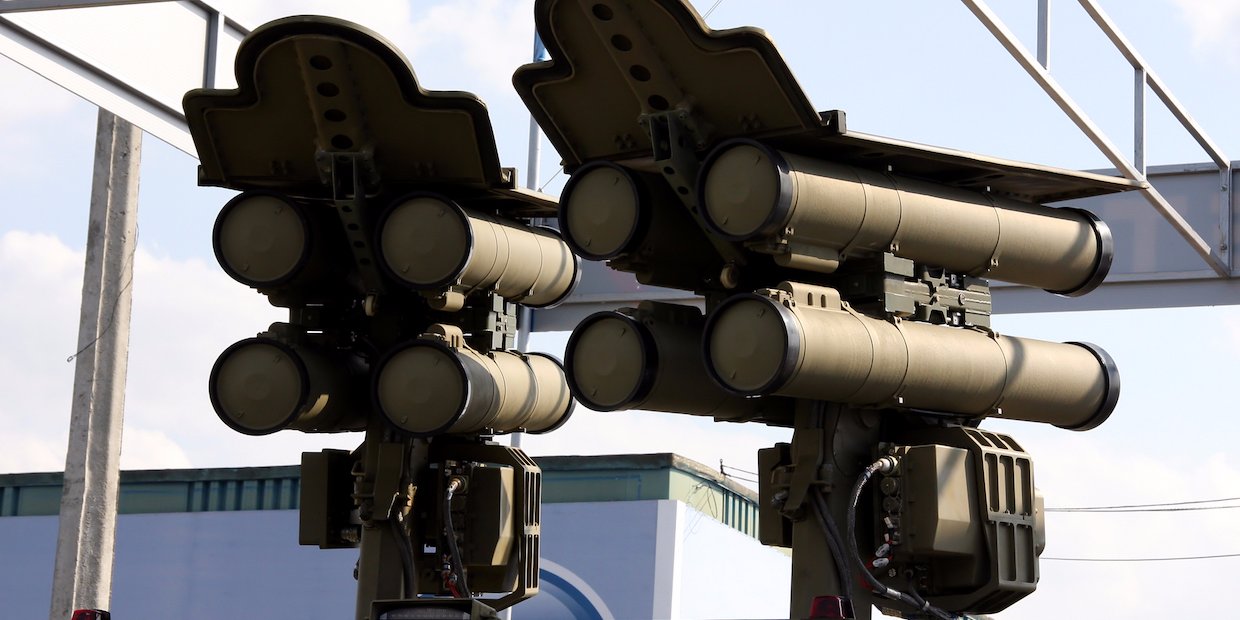Often lost in the discussion of Russian military hardware are the anti-tank missiles. While Russia has long been known for having a large force of tanks (almost 22,000, according to GlobalSecurity.org), they also deployed capable anti-tank missiles.
In the Cold War, major systems used by the Soviet Union were the AT-4 Spigot, the AT-5 Spandrel, and the AT-7 Saxhorn. These were all wire-guided systems. The AT-4 and AT-7 were generally man-portable systems while the AT-5 was used from vehicles like the BMP-2 infantry fighting vehicle.
The AT-4 had a range of roughly one and a half miles, comparable to the FGM-148 Javelin. The AT-5 had a range of about two and a half miles, while the AT-7 had a range of 1,00 yards.
The Soviets hadn’t stopped there. With the development and deployment of new NATO tanks like the M1 Abrams, the British Challenger, and the German Leopard 2, the Soviets developed the AT-13 Saxhorn 2 and the AT-14 Spriggan.
(AT-14 Kornet EM)
The former, an improved version of the AT-7, increases that system’s range to about 2,000 yards. The latter syste m can reach out to just over six miles, depending on the version.
Russia has widely exported its missile systems. Ironically, the modern AT-13 has been acquire by South Korea, while the AT-14 was acquired in large numbers by Greece and Turkey, NATO members who would be bound by the North Atlantic Treaty to defend Poland or the Baltic states in the event of Russian aggression.
These missiles are somewhat slower than the fire-and-forget Javelin, but they can be guided by troops up to the moment of impact.
Russia not only has anti-tank warheads, but also thermobaric systems that can do some serious damage to infantry and light vehicles. To learn more about these missiles, check out the video below.
Source: businessinsider.com
Ask me anything
Explore related questions






